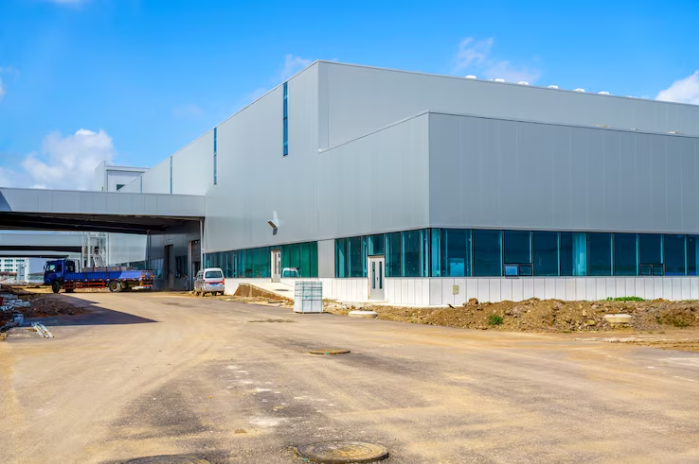Investing in industrial properties can be a lucrative venture with the potential for significant returns on investment. However, just like any other investment, it comes with its own set of challenges and considerations. Whether you’re a seasoned investor looking to diversify your portfolio or a newcomer exploring the world of real estate, understanding the key factors that influence the success of industrial property investments is crucial.
Key Considerations for Investing in Industrial Properties
When it comes to investing in industrial properties, careful planning and research are essential to make informed decisions. Here are some key considerations that can significantly impact the outcome of your investment:
Location: The Foundation of Industrial Property Investment
The location of an industrial property plays a pivotal role in its potential for success. Proximity to transportation hubs, major highways, and urban centers can enhance the property’s accessibility and attract potential tenants or buyers. Choose a location that aligns with the type of industry you aim to attract, whether it’s manufacturing, logistics, or distribution.
Property Condition and Infrastructure
Inspecting the condition of the property’s infrastructure is vital. This includes evaluating the state of utilities, such as electricity, water, and sewage systems. A property with well-maintained infrastructure can save you from unexpected repair costs down the road and contribute to a seamless business operation for tenants.
Market Demand and Trends
Staying informed about market trends and demands is essential for making sound investment decisions. Research the local industrial property market to understand vacancy rates, rental rates, and overall demand. Adapting your investment strategy based on current market dynamics can help you maximize your returns.
Zoning and Regulatory Compliance
Industrial properties are subject to specific zoning regulations and permits. Ensure that the property is zoned for the intended use and complies with local regulations. Failure to do so could lead to legal issues and hinder your ability to operate the property effectively.
Financial Feasibility and Budgeting
Conduct a thorough financial analysis before making an investment. Calculate potential rental income, operating expenses, and projected cash flow. It’s important to have a clear understanding of your budget and financing options to avoid overextending yourself financially.
Environmental Considerations
Industrial properties often have a history of varying activities that might impact the environment. Performing an environmental assessment can uncover any potential contamination issues. Addressing these concerns early on can prevent costly remediation efforts in the future.
Lease Agreements and Tenant Relationships
If you’re planning to lease out your industrial property, drafting comprehensive lease agreements is crucial. Clear terms regarding rent, responsibilities, and lease duration can help establish a positive landlord-tenant relationship and avoid disputes.
Exit Strategy
Having an exit strategy is essential for any investment. Determine how you plan to exit the investment if circumstances change. Whether it’s selling the property, refinancing, or passing it on to heirs, a well-defined exit strategy provides a roadmap for the future.
Professional Advice and Networking
Engaging with professionals in the real estate industry can provide valuable insights and guidance. Real estate agents, attorneys, and property managers can offer expertise that complements your investment journey.
FAQs about Investing in Industrial Properties
Q: How do I determine the right location for an industrial property investment?
A: Research the local industrial landscape, considering factors like transportation links, proximity to suppliers and consumers, and zoning regulations to identify a suitable location.
Q: What are the potential risks of investing in industrial properties?
A: Risks include market fluctuations, economic downturns affecting tenant businesses, and unexpected maintenance or repair costs. Conduct thorough due diligence to mitigate these risks.
Q: Can I invest in industrial properties with a limited budget?
A: Yes, but it’s important to explore financing options, calculate potential returns, and focus on properties that align with your budget constraints.
Q: How can I attract reputable tenants for my industrial property?
A: Maintain the property well, offer competitive rental rates, and market the property’s strategic location and amenities to attract reputable tenants.
Q: Is it advisable to invest in industrial properties as a beginner investor?
A: While industrial properties can offer attractive returns, they often require more extensive management. New investors should thoroughly research and consider seeking advice from professionals.
Q: What role does property management play in industrial property investment?
A: Effective property management ensures regular maintenance, tenant satisfaction, rent collection, and adherence to regulations, ultimately contributing to the property’s success.
Conclusion
Investing in industrial properties presents a unique opportunity to diversify your portfolio and achieve long-term financial growth. By carefully considering factors such as location, property condition, market trends, and regulatory compliance, you can make informed decisions that yield substantial returns. Remember, seeking professional advice, staying informed about industry developments, and conducting thorough research are integral parts of a successful industrial property investment journey.











+ There are no comments
Add yours